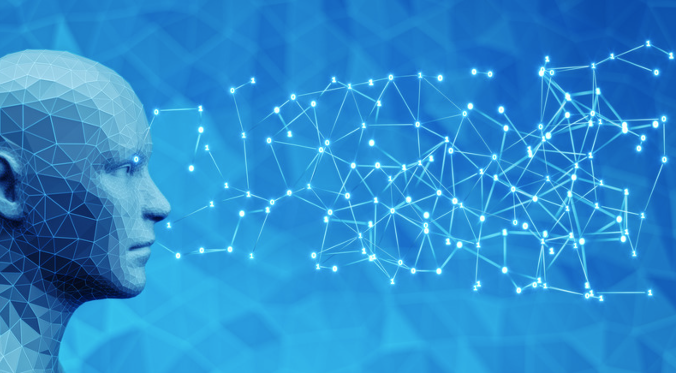
Artificial Intelligence for Robotics is reshaping the future, unlocking new possibilities at the intersection of technology and human interaction. At the forefront of this change is the integration of AI into social robotics, where robots do more than just complete tasks—they understand and respond to our emotions, fostering meaningful connections between humans and machines.
With AI, social robots can interpret human emotions, behaviors, and gestures, allowing them to become intelligent, adaptive companions. Through advanced algorithms, these robots learn from their environment, recognize emotional cues, and engage with us in ways that bridge the gap between technology and human experience.

Integrating AI-powered robotics is revolutionizing several industries, with social robots playing a crucial role in enhancing human experiences. In healthcare, these robots provide companionship and personalized care, offering therapeutic support to patients, especially those isolated or suffering from chronic conditions. They can monitor health data, remind patients to take medication and offer emotional support, significantly improving the quality of life for individuals in care settings. In education, AI-powered robots are transforming the learning environment by offering adaptive tutoring and individualized instruction tailored to each student’s needs, ensuring that learning is personalized and more effective. In customer service, service robots enhance user experiences with interactive chatbots and kiosks, streamlining communication and providing instant assistance in various sectors. Lastly, social companionship is one of the most profound impacts of AI in robotics. Robots designed for empathetic interaction help combat loneliness, particularly in elderly populations, by offering comforting conversations and emotional engagement. Through these key applications, social robots are not only changing the way we live and work but also shaping a future where technology fosters deeper, more meaningful human connections.
The integration of artificial intelligence (AI) in robotics brings numerous benefits and challenges, particularly in enhancing human experiences across various domains. Social robots equipped with AI offer significant advantages, including improved mental health, enhanced learning experiences, and optimized service delivery. AI enables robots to interact in intuitive and natural ways, making them more effective and user-friendly. Key technologies such as Natural Language Processing (NLP), Computer Vision, and Emotion Recognition are integral to this evolution:
These capabilities transform robots from automated devices into empathetic, relational partners capable of building meaningful connections. Cynthia Breazeal, a pioneer in the field of social robotics, coined the term “Relational AI” to describe AI designed to engage with humans in a more human-centric way. As an associate professor at MIT, Breazeal focuses her research on how AI can positively impact individuals in their daily lives. She emphasizes that social robots should adhere to principles of human social and emotional psychology to create interactions that feel more like engaging with a “someone” rather than a “something.”
Social robots are transforming healthcare and education by integrating artificial intelligence for robotics. In healthcare, these robots offer companionship, emotional support, and tailored care, particularly in home care settings. By alleviating loneliness and providing therapeutic support, they improve mental well-being and assist caregivers. For instance, AI-powered therapeutic robots are being utilized to assist individuals facing mental health challenges, such as those exposed to traumatic situations. Cindy L. Bethel, Professor and Director of the Social, Therapeutic & Robotic Systems Lab, emphasizes how robots provide animal-assisted therapy, and bridge the gap between real animals and robotic platforms.
In the field of education, AI-driven social robots play a critical role by providing personalized learning experiences. These robots adapt to individual students’ needs, making education more engaging and accessible. In sensitive situations, such as forensic interviews with children, robots have proven more effective in helping children feel comfortable and share personal information.
In customer service, AI-driven robots significantly improve user experiences by providing personalized assistance. Interactive chatbots and kiosks optimize service delivery, while retail robots offer efficient support to customers, ensuring quicker and more accurate transactions. These robots are designed to understand and respond to customer needs in real time, enhancing satisfaction. Beyond their functional roles, these robots are evolving into companions, providing emotional support and helping to reduce social isolation. They offer a level of empathy and interaction that was once exclusive to human service providers. As technology continues to advance, humanoid artificial intelligence is playing an increasingly important role in building meaningful connections between customers and brands.
As AI continues to evolve, the potential of social robotics grows, driven by the remarkable capabilities offered by advanced AI technologies. The integration of artificial intelligence for robotics is sparking a transformative shift in how humans interact with technology. Shortly, robots will possess enhanced emotional intelligence, enabling them to engage in more nuanced, empathetic interactions.
However, the rise of social robotics also brings several ethical challenges that must be addressed to ensure these technologies serve humanity responsibly. Among the key concerns are:
As we move forward, it’s crucial to balance innovation with responsibility. Ethical considerations and responsible design will help guide the development of social robotics in ways that prioritize human values and well-being. By combining emotional intelligence with advanced capabilities, robots are evolving from mere tools into companions that offer essential support and assistance, enhancing our lives in meaningful and lasting ways. Furthermore, the evolution of human robot interaction is pivotal in ensuring that these relationships remain beneficial and harmonious for society. There is a full potential to create a future where robots can not only perform tasks but become integral parts of our social fabric, fostering connections and improving quality of life.
We’re here to help! Whether you have questions, need support, or want to know more about us and our services, fill out the form below and our team will get back to you promptly.
Let’s explore the future of AI and robotics together.
